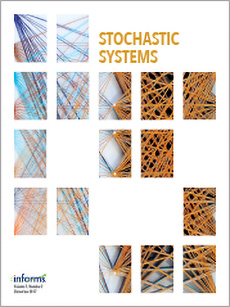Abstract
To understand the performance of a queueing system, it can be useful to focus on the evolution of the content that is initially in service at some time. That necessarily will be the case in service systems that provide service during normal working hours each day, with the system shutting down at some time, except that all customers already in service at the termination time are allowed to complete their service. Also, for infinite-server queues, it is often fruitful to partition the content into the initial content and the new input, because these can be analyzed separately. With i.i.d service times having a non-exponential distribution, the state of the initial content can be described by specifying the elapsed service times of the remaining initial customers. That initial content process is then a Markov process. This paper establishes a many-server heavy-traffic (MSHT) functional central limit theorem (FCLT) for the initial content process in the space $\mathbb{D}_{\mathbb{D}}$, assuming a FCLT for the initial age process, with the number of customers initially in service growing in the limit. The proof applies a symmetrization lemma from the literature on empirical processes to address a technical challenge: For each time, including time $0$, the conditional remaining service times, given the ages, are mutually independent but in general not identically distributed.
Citation
A. Korhan Aras. Yunan Liu. Ward Whitt. "Heavy-traffic limit for the initial content process." Stoch. Syst. 7 (1) 95 - 142, 2017. https://doi.org/10.1214/15-SSY175
Information





